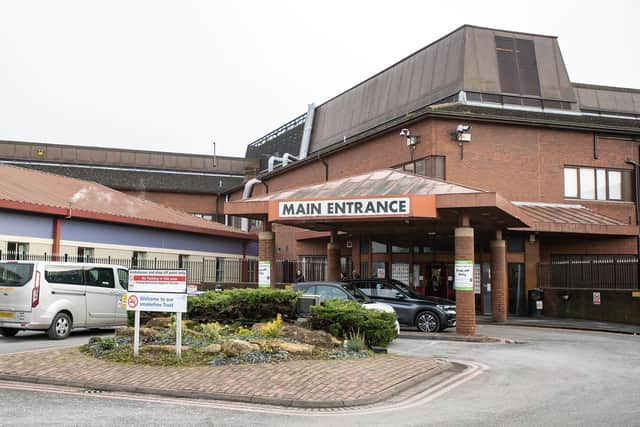£57m payout for 'failings at ULHT hospitals leading to cerebral palsy'


The shocking revelation regarding United Lincolnshire Hospitals trust (ULHT) follows a Freedom of Information request to NHS Resolutions by specialist negligence Law Firm Lime Solicitors
Lime say they have published the report to highlight the “importance of clinical negligence claims in funding vital aftercare and safeguarding patients”.
Advertisement
Hide AdAdvertisement
Hide AdULHT who have four hospitals in Lincolnshire – at Boston, Lincoln, Louth and Grantham – say they are unable “to comment on the specific detail of the claims” but “acknowledge that any failure to provide care to the high standards we expect can impact upon our patients and their loved ones.”
The Trust has also stressed “any funds paid out in litigation cases are not paid by ULHT but are covered by the premium paid each year to NHS Resolution”.
Lime state that between the financial years 2010/11 and 2020/21, ULHT settled 14 clinical negligence claims related to the lifelong condition, paying out £57.3 million in damages – an average of £4 million per case.
The data also revealed that nationally, almost 1 in 12 cerebral palsy cases could have been avoided, with trusts across the country paying out a total of £4.3 billion in damages. In 2020/21, 268 new claims were brought forward – the highest in at least a decade.
Advertisement
Hide AdAdvertisement
Hide AdRobert Rose, head of clinical negligence at Lime Solicitors, said: “One of the main causes of cerebral palsy is hypoxic brain injury during childbirth, which is where a baby’s brain gets starved of oxygen. Sometimes, this cannot be prevented or it is impossible to work out what caused the child’s injuries.


“However, negligent mistakes by healthcare professionals can lead to a child sustaining a hypoxic brain injury. Errors can include delayed delivery, birth injuries, failing to respond to the umbilical cord being wrapped around a baby’s neck, and missing signs of foetal distress, such as meconium.
“Our NHS is fantastic. While the first duty of a healthcare system is to do no harm, sometimes things do go wrong and care falls below medical standards. Clinical negligence claims play a critical role in safeguarding patients against negligent treatment."
In a statement to Lincolnshire World, United Lincolnshire Hospitals NHS Trust Medical Director Colin Farquharson said:
Advertisement
Hide AdAdvertisement
Hide Ad“NHS Resolution settles litigation claims on behalf of all NHS Trusts, and any funds paid out in litigation cases are not paid by ULHT but are covered by the premium paid each year to NHS Resolution.


“While we are not able to comment on the specific detail of the claims referred to during the 10 year period relating to this Freedom of Information request, we acknowledge that any failure to provide care to the high standards we expect can impact upon our patients and their loved ones. This is why we take every opportunity to listen to those experiencing our care and to learn from our mistakes, acting openly and honestly when those standards are not met.
“We also use the learning of others to improve the quality of our care, including implementing recommendations made from national reviews such as the report by Donna Ockenden for all Trusts providing maternity services.
“We remain committed to continual improvement in the care and support offered to everyone in our care.”